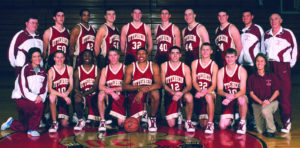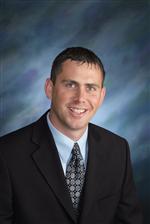I stopped coaching football in the fall of 2000. That’s a long time ago. In the spring of 2018, Eric Myers, who’s the Track and Field Coach at our school, surprised me with an unexpected proposition, Jim…you need to get back into coaching. I need an assistant. Coach with me. We’ll have a blast! I was totally unprepared for this solicitation. I responded, Wow…thanks, but I’m long removed from the coaching mindset. It’s been years since I’ve coached. I’m sorry!
I was surprised by Eric’s proposition. That was a problem. I said no instinctively without giving it much thought. I promptly dismissed the idea and went on with my busy day.
Our minds, however, function in mysterious ways. Last summer on a gorgeous Ohio day, I needed something to do. My wife had an obligation, so I was free to entertain myself. I decided to go hiking at Mohican State Park near Mansfield, Ohio. For some odd reason, as I strolled over the beautiful trails surrounded by sun-dappled hemlocks, I started thinking about coaching again:
- Man, it would take a lot of time out of my day.
- Boy, parents become spastic whenever their offspring are even remotely engaged in competition.
- I’m not as young as I used to be.
But these thoughts were overwhelmed by others:
- When I was coaching I had a relational advantage in the classroom because I bonded with kids on the playing field.
- While I’m not as young as I used to be, I’m still very fit and coaching might make me feel even younger.
- I had a lot of fun coaching and there’s no reason to think that couldn’t be the case again.
- And finally and most importantly, I have a lot to offer those kids in the role of a coach.
On my way home from the hike, I called Coach Myers and told him that if he needed me next year, I was available.
Now, fast-forward to February of 2019. Eric informed that he did need me to help coach running events, but he really needed a discus coach. This introduced a fascinating new variable. I was a speed guy in high school. I’d never picked up a discus in my life. Eric assured me that I could teach myself and clarified that practice started on the 4th of March, so I needed to get cracking!
This is a perfect example of self-directed learning. Over the past 2 weeks, I’ve researched, watched video, interviewed experienced throwers, and practiced the movements. To the amusement and annoyance of wife and offspring, I’ve thrown a lot of things against my basement wall mimicking throwing the discus. My form has evolved. I’m now excited to teach others. Please…repeat after me, When we teach ourselves, it sticks
Deanna Hess teaches dual enrollment English at Dover High School in Dover, Delaware. My story about self-directed learning dovetails perfectly with her story about a prompt she recently gave students. Deanna challenged her kids by placing the learning objective at the end of the prompt! In other words, the learning objective represented Point B in a journey. Point A and how students got to Point B, was totally up to them. If this sounds fun, courageous, powerful, and something you’d like to try in your classroom, then you, dear friend, have downloaded the right podcast. Deanna describes her evolution in thinking about the assignment, the twists and turns of its execution, her interesting observations during the process, and the potential as a future instruction tactic. There’s no doubt that this lesson was a powerful learning experience for Deanna’s students. Here’s a link to the prompt Deanna gave her kids:
Episode Template
The Problem:
Self-directed learning is powerful, but teachers don’t do enough of it.
The Solution:
Overcome your reservations and turn the keys over to your kids.
What you can do Tomorrow:
- Recruit an upcoming lesson as a wonderful candidate for student-led learning
- Craft a prompt with the learning objectives at the end
- Anticipate emotions you might experience as you relinquish control
- Create space for students to brainstorm and collaborate on how to demonstrate learning
- Consult with colleagues who already do a lot of student-led learning
The things that I have taught myself have incredible power. Why not put this phenomenon to work in your class?
Listen to “116-Deanna Hess Enthusiastically Turns the Car Keys Over to Her Kids” on Spreaker.



